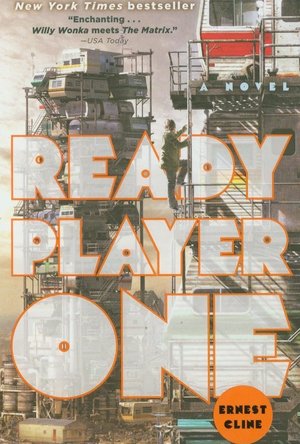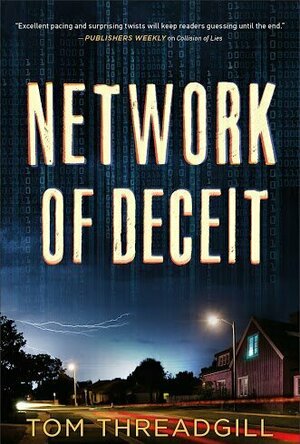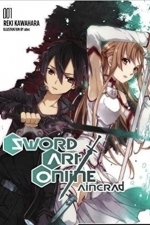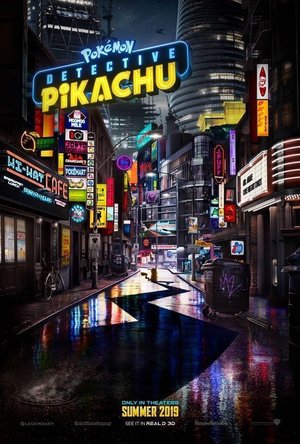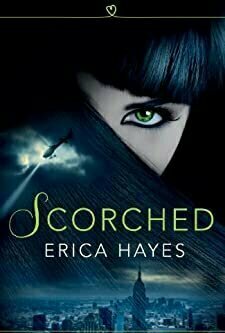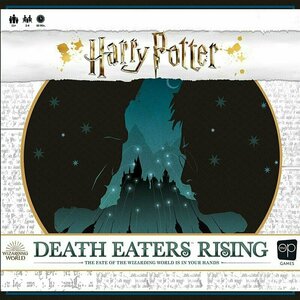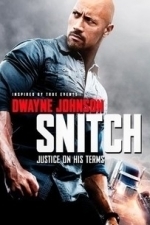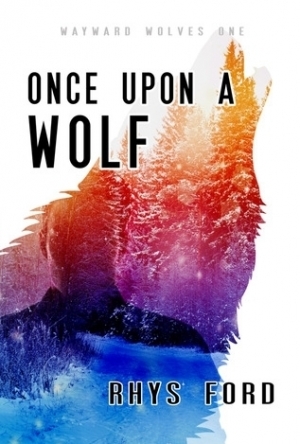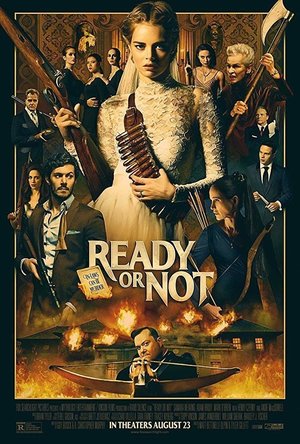Search
Search results
Saerie_Faerie (18 KP) rated Ready Player One in Books
Feb 17, 2018
Cute but total nerd fantasy insert
Contains spoilers, click to show
I was super excited for this book when it first came out and even more excited when I saw it was becoming a story. As a nerd, an over arching nerd into books, games, music, and everything else I thought I finally would get to witness a glorious book/movie about it.
However, almost immediately upon starting it I realized I was probably not going to enjoy it as much as I had hoped. Thankfully Wil Wheaton was the performer for the Audio book so I could continue listening.
The main character, Wade, goes on several solilogues about all of the nerd things that he knows everything about. Several times, Wade is miraculously the only one who knows everything and is amazing at it.
At one point he actually just lists out all of the 80s authors he has read in entirety which is amazing for a 17 year old who spends all of his time on the Oasis and also playing video games and watching movies. On top of all that, his list is entirely male authors, directors, and programmers. Why not mention Tamora Pierce, a huge author of the 80s or Marion Zimmer Bradley author of a King Arthur novel which Wade would have been very into considering his character name and the fact that he says he is very into King Arthur.
There are two female characters and they get barely any screen time. Here is where I got super excited because I am a female nerd who plays tons of video games and met several partners online it was going to be good to address the things that happen. But it doesn't. She says she is "deformed" and disappears until the end of the story, then we find out she looks just as amazing as her fake person avatar except *GASP* she has a birthmark on her face. Face birth marks can feel debilitating and terrifying but in the scope of things, its a not problem.
My main problem with Wade is that he asks the love interest "Are you a woman? Are you a woman that has never been a man?" And like... What? Worrying the person you are talking to is who they say they are is a big thing but to go straight to being transphobic is not okay. Sure, he is a teenager but he is a teenager in the distant future where people literally go to school in a video game and can make an alien avatar, surely it wouldn't still be "weird".
More than anything this felt like a nerd dream fantasy life that "came true". Was THE BEST at all the things, became rich from video games, got the hot girl, became famous. What more could you want?
But I still really like this book and story, it just could have gone so much better. So many important things could have been addressed and explained and they just weren't.
However, almost immediately upon starting it I realized I was probably not going to enjoy it as much as I had hoped. Thankfully Wil Wheaton was the performer for the Audio book so I could continue listening.
The main character, Wade, goes on several solilogues about all of the nerd things that he knows everything about. Several times, Wade is miraculously the only one who knows everything and is amazing at it.
At one point he actually just lists out all of the 80s authors he has read in entirety which is amazing for a 17 year old who spends all of his time on the Oasis and also playing video games and watching movies. On top of all that, his list is entirely male authors, directors, and programmers. Why not mention Tamora Pierce, a huge author of the 80s or Marion Zimmer Bradley author of a King Arthur novel which Wade would have been very into considering his character name and the fact that he says he is very into King Arthur.
There are two female characters and they get barely any screen time. Here is where I got super excited because I am a female nerd who plays tons of video games and met several partners online it was going to be good to address the things that happen. But it doesn't. She says she is "deformed" and disappears until the end of the story, then we find out she looks just as amazing as her fake person avatar except *GASP* she has a birthmark on her face. Face birth marks can feel debilitating and terrifying but in the scope of things, its a not problem.
My main problem with Wade is that he asks the love interest "Are you a woman? Are you a woman that has never been a man?" And like... What? Worrying the person you are talking to is who they say they are is a big thing but to go straight to being transphobic is not okay. Sure, he is a teenager but he is a teenager in the distant future where people literally go to school in a video game and can make an alien avatar, surely it wouldn't still be "weird".
More than anything this felt like a nerd dream fantasy life that "came true". Was THE BEST at all the things, became rich from video games, got the hot girl, became famous. What more could you want?
But I still really like this book and story, it just could have gone so much better. So many important things could have been addressed and explained and they just weren't.
TravelersWife4Life (31 KP) rated Network of Deceit in Books
Feb 22, 2021
Great Deductive Reasoning
Detective Amara Alvarez from the SAPD (San Antonio Police Department) Homicide brings us a great new case in Network of Deceit. From the first page, I was hooked on this story. I was a big fan of Collision of Lies the first book in this stand-alone series, for the character development Tom Threadgill uses, and how he walks us through the case just as if we were there asking the questions to figure out the case right along Detective Alvarez. Detective Alvarez has a light sense of humor, and she is a bit of a quirky character take this for instance: “[Detective Alvarez] heading home to Larry, her three-foot-long pet iguana”. I also love Tom Threadgill’s use of dry sarcastic humor and wit in the conversations between Detective Alvarez and Detective Jeremiah “Starsky” Peckham is it fun to read and adds another layer to the story.
This particular case was rife with speculation, suspense, and unanswered questions that left me guessing until the end. A true mystery in every sense of the word. We are shown every step in the case and it is not tv fast paced, it is realistic. Tom Threadgill gives accurate timelines for the turnaround on things like autopsy reports and toxicology reports, unlike most tv shows. I also really enjoyed the cybercrime aspects of the story and I thought that it was explained in an easy-to-understand way for anyone, even if you do not have any previous knowledge of cybercrimes.
I would suggest that you go back and read Collision of Lies before this one as it gives you more background on the characters and you would have a better understanding of the case the previous book covers that is mentioned a few times in this one. But this one can be read as a stand-alone since the whole case is started and wrapped up in this book. Overall, I truly loved this book, and the way Tom Threadgill moved the case along, and I am looking forward to what other adventures that Detective Alvarez takes me on. 5 out of 5 stars.
This particular case was rife with speculation, suspense, and unanswered questions that left me guessing until the end. A true mystery in every sense of the word. We are shown every step in the case and it is not tv fast paced, it is realistic. Tom Threadgill gives accurate timelines for the turnaround on things like autopsy reports and toxicology reports, unlike most tv shows. I also really enjoyed the cybercrime aspects of the story and I thought that it was explained in an easy-to-understand way for anyone, even if you do not have any previous knowledge of cybercrimes.
I would suggest that you go back and read Collision of Lies before this one as it gives you more background on the characters and you would have a better understanding of the case the previous book covers that is mentioned a few times in this one. But this one can be read as a stand-alone since the whole case is started and wrapped up in this book. Overall, I truly loved this book, and the way Tom Threadgill moved the case along, and I am looking forward to what other adventures that Detective Alvarez takes me on. 5 out of 5 stars.

Risk & Insurance magazine
Business and Magazines & Newspapers
App
The leading risk management and commercial insurance magazine is now available on the iPad and...
**✿❀ Maki ❀✿** (7 KP) rated Sword Art Online: 1: Aincrad in Books
May 3, 2018
I don't know why I did this to myself. I knew I wasn't going to enjoy it. I suppose that in my mind, I thought of it as reconnaissance work, to try to better understand where all of the "Kirito" and "Asuna" clones suddenly flooding the few MMOs I played were coming from.
<img src="http://i1321.photobucket.com/albums/u556/kotonemaki/For%20R%20Purposes/12.29.12%20If%20SAO%20was%20Real_zpsjsrg8fz5.jpg"/>;
I enjoyed the premise of the light novel - the whole "being trapped in a video game until you beat it and if you die in the game you die in real life" thing. I also liked the idea that once in the game, the players were stripped of their anonymity. They were forced to play as themselves, rather than the avatars they had created to represent themselves.
And it's nice that the novel/anime/manga have managed to carve out their own space in the "virtual reality gone wrong" genre, and give .hack// some competition.
But I really, <i>really</i> did not like Kirito.
Maybe I'm a bit prejudiced against the character because of the flood of people naming themselves Kirito in MMOs who made the games obnoxious to play for months on end, since a good portion of them had no idea what they were doing. They all chose to play tanks (of course) and completely ruined it for people looking for a tank who knew what they were doing, or made it harder for actual tanks to get a party, because nobody trusted anybody to know what they were doing in those dark years after the anime first came out.
Maybe it's because Kirito (the actual character) was such a complete special snowflake, without any real redeeming qualities, other than the fact that he managed to luck into his power. That, and his relationship with Asuna are all that really define his character.
I've heard that their characters and the build up of their relationship are handled better in the anime, and doesn't come across as so insta-love. But to be honest, I've got no desire to watch the anime just to get character development when it should have been handled better in the novel that the anime was based on in the first place.
<img src="http://i1321.photobucket.com/albums/u556/kotonemaki/For%20R%20Purposes/12.29.12%20If%20SAO%20was%20Real_zpsjsrg8fz5.jpg"/>;
I enjoyed the premise of the light novel - the whole "being trapped in a video game until you beat it and if you die in the game you die in real life" thing. I also liked the idea that once in the game, the players were stripped of their anonymity. They were forced to play as themselves, rather than the avatars they had created to represent themselves.
And it's nice that the novel/anime/manga have managed to carve out their own space in the "virtual reality gone wrong" genre, and give .hack// some competition.
But I really, <i>really</i> did not like Kirito.
Maybe I'm a bit prejudiced against the character because of the flood of people naming themselves Kirito in MMOs who made the games obnoxious to play for months on end, since a good portion of them had no idea what they were doing. They all chose to play tanks (of course) and completely ruined it for people looking for a tank who knew what they were doing, or made it harder for actual tanks to get a party, because nobody trusted anybody to know what they were doing in those dark years after the anime first came out.
Maybe it's because Kirito (the actual character) was such a complete special snowflake, without any real redeeming qualities, other than the fact that he managed to luck into his power. That, and his relationship with Asuna are all that really define his character.
I've heard that their characters and the build up of their relationship are handled better in the anime, and doesn't come across as so insta-love. But to be honest, I've got no desire to watch the anime just to get character development when it should have been handled better in the novel that the anime was based on in the first place.
Gareth von Kallenbach (980 KP) rated Pokémon: Detective Pikachu (2019) in Movies
Jul 2, 2019
Detective Pikachu is the long awaited live action movie of the beloved video game and animated tv show franchise. The video game has sold over 1.31 billion units, so this movie has a very established fan base that is excited for new content, but also critical when new product doesn’t meet their expectations.
Video game movies in general are typically VERY bad. So bad that any time I hear they are making a movie out of a video game I immediately cringe out of reflex. I’ve been permanently scarred by the likes of Tekken, Super Mario Bros and Mortal Kombat. When Tomb Raider is your benchmark for the best of the best you have reason to be afraid when they say that Detective Pikachu is coming to theaters.
But fear not! This movie is not perfect but it does entertain!
Detective Pikachu is played by the voice of Ryan Reynolds, which in case you didn’t know Pokemon typically do not talk, so this is unusual right off the bat. Pokemon basically just repeat their name over and over again with different voice inflections in order to convey mood or urgency. It’s not as annoying as it sounds; it’s typically adorable actually. Reynolds does an excellent PG impersonation of Deadpool as Pikachu in a comedic role as detective Pikachu and it works surprisingly well. His comic timing is so perfect and the jokes don’t come off as childish or boorish, it really flows and works perfectly in the movie.
Justice Smith plays the lead character role of Tim Goodman who is trying to solve the murder of his estranged father. Justice Smith is very likable and you root for him to beat the bad guy and get the girl (played by Kathryn Newton), which is all you really need in a summer action movie; you need to want the hero or heroine to win. Justice Smith does a great job and I could see them building a franchise around his character going forward.
The visuals are fantastic! Its great seeing the characters from the video game walking around full size like that on the big screen and they did not just do a few, the movie is crawling with them and I loved that.
The story is fairly standard and does follow a formula but it moves along at a good pace and at 1 hour and 44 minutes long it feels like it’s not too long or too short. There are jokes that only the adults will get, there are game characters that only hardcore fans will recognize, but this movie was made for as wide an audience as a video game movie could be. They were trying to make it accessible to all, and I think they accomplished that.
It’s a big budget buddy cop popcorn movie with a lot of action, some laughs, a very light and fluffy kid friendly side love story and great special effects. There was a plot hole or two but it was forgivable and too entertaining to ruin it. I highly recommend turning off your brain, grabbing some popcorn and just enjoying this movie. Not perfect, but very good and fun!
Video game movies in general are typically VERY bad. So bad that any time I hear they are making a movie out of a video game I immediately cringe out of reflex. I’ve been permanently scarred by the likes of Tekken, Super Mario Bros and Mortal Kombat. When Tomb Raider is your benchmark for the best of the best you have reason to be afraid when they say that Detective Pikachu is coming to theaters.
But fear not! This movie is not perfect but it does entertain!
Detective Pikachu is played by the voice of Ryan Reynolds, which in case you didn’t know Pokemon typically do not talk, so this is unusual right off the bat. Pokemon basically just repeat their name over and over again with different voice inflections in order to convey mood or urgency. It’s not as annoying as it sounds; it’s typically adorable actually. Reynolds does an excellent PG impersonation of Deadpool as Pikachu in a comedic role as detective Pikachu and it works surprisingly well. His comic timing is so perfect and the jokes don’t come off as childish or boorish, it really flows and works perfectly in the movie.
Justice Smith plays the lead character role of Tim Goodman who is trying to solve the murder of his estranged father. Justice Smith is very likable and you root for him to beat the bad guy and get the girl (played by Kathryn Newton), which is all you really need in a summer action movie; you need to want the hero or heroine to win. Justice Smith does a great job and I could see them building a franchise around his character going forward.
The visuals are fantastic! Its great seeing the characters from the video game walking around full size like that on the big screen and they did not just do a few, the movie is crawling with them and I loved that.
The story is fairly standard and does follow a formula but it moves along at a good pace and at 1 hour and 44 minutes long it feels like it’s not too long or too short. There are jokes that only the adults will get, there are game characters that only hardcore fans will recognize, but this movie was made for as wide an audience as a video game movie could be. They were trying to make it accessible to all, and I think they accomplished that.
It’s a big budget buddy cop popcorn movie with a lot of action, some laughs, a very light and fluffy kid friendly side love story and great special effects. There was a plot hole or two but it was forgivable and too entertaining to ruin it. I highly recommend turning off your brain, grabbing some popcorn and just enjoying this movie. Not perfect, but very good and fun!
Leanne Crabtree (480 KP) rated Scorched (Sapphire City, #1) in Books
Jan 6, 2021
I received this ARC via Netgalley in exchange for an honest review.
The cover drew me in. Isn’t it a thing of beauty?
When I requested this I assumed it would be more paranormal than it was. In fact it was more fantasy than anything. People who go around using their powers–known as the Augmented–to stop evil, dressed up in disguise. Superheroes?
I was quickly drawn into the story within the first chapter when we see Verity struggle to remember who she is and that she isn’t a bad person after being tortured by her arch nemesis’ minions in a mental asylum and her escape from there. She runs to a safe house and bumps into her brother who tells her she’s been MIA for nine months.
Can I just stop there for a minute and mention the Fortune siblings’ names? The eldest is Equity, then Adonis, then there is Verity and baby brother Chance. I love their names! If they don’t scream Superhero, I don’t know what does :D
Anyway, back to the story. On Verity’s return to her family, things don’t go smoothly and she realises things don’t add up. Is there a conspiracy in the works?
Throughout the story we see flashbacks of the night that Verity was captured and it is all very intriguing. At just over half way through I had my suspicions of what they would end up showing and I was right in my assumption about what some of it would show. I’m not going into detail as it would totally ruin in for you.
We meet a lot of other Augmented people: Iceclaw, Weasel, Glimmer. Some are good and some not so much. I liked the description of each and how they earned their names. They were thought out and I could picture them easily.
I grew to really like Glimmer, he seemed like a really nice guy. Verity, on the other hand, I couldn’t decide about. She seemed to like pushing people away and was full of self-loathing a lot of the time, unable to justify some of the things she’d done.
To start with I didn’t mind the lack of romance, as I was so caught up in the drama surrounding Verity, but the more I read the book the more I missed it. There was a bit; some kisses exchanged and nice words but nothing like the amount I like to read in books and that’s reflected in my rating.
It was full of action and intrigue. I liked the superhero vs. bad guys aspect. If you like the sound of it, then I’d suggest you go grab a copy.
The cover drew me in. Isn’t it a thing of beauty?
When I requested this I assumed it would be more paranormal than it was. In fact it was more fantasy than anything. People who go around using their powers–known as the Augmented–to stop evil, dressed up in disguise. Superheroes?
I was quickly drawn into the story within the first chapter when we see Verity struggle to remember who she is and that she isn’t a bad person after being tortured by her arch nemesis’ minions in a mental asylum and her escape from there. She runs to a safe house and bumps into her brother who tells her she’s been MIA for nine months.
Can I just stop there for a minute and mention the Fortune siblings’ names? The eldest is Equity, then Adonis, then there is Verity and baby brother Chance. I love their names! If they don’t scream Superhero, I don’t know what does :D
Anyway, back to the story. On Verity’s return to her family, things don’t go smoothly and she realises things don’t add up. Is there a conspiracy in the works?
Throughout the story we see flashbacks of the night that Verity was captured and it is all very intriguing. At just over half way through I had my suspicions of what they would end up showing and I was right in my assumption about what some of it would show. I’m not going into detail as it would totally ruin in for you.
We meet a lot of other Augmented people: Iceclaw, Weasel, Glimmer. Some are good and some not so much. I liked the description of each and how they earned their names. They were thought out and I could picture them easily.
I grew to really like Glimmer, he seemed like a really nice guy. Verity, on the other hand, I couldn’t decide about. She seemed to like pushing people away and was full of self-loathing a lot of the time, unable to justify some of the things she’d done.
To start with I didn’t mind the lack of romance, as I was so caught up in the drama surrounding Verity, but the more I read the book the more I missed it. There was a bit; some kisses exchanged and nice words but nothing like the amount I like to read in books and that’s reflected in my rating.
It was full of action and intrigue. I liked the superhero vs. bad guys aspect. If you like the sound of it, then I’d suggest you go grab a copy.
Purple Phoenix Games (2266 KP) rated Harry Potter: Death Eaters Rising in Tabletop Games
Dec 3, 2020
Have you read our review of Thanos Rising: Avengers Infinity War? If you have not, please do. I’ll wait. The reason I ask is because this Harry Potter version is a reimplementation of Thanos Rising with a few new twists. Great twists. In fact, I’ll spoil it for you and let you know that I now prefer the Harry Potter version even though I enjoy Marvel-related things in my life much more. But why is it good or better than its predecessor?
Harry Potter: Death Eaters Rising is a game utilizing the Rising system of games (which also includes Batman, Star Wars, and SpongeBob Squarepants as of now) for two to four players. It is a cooperative game where players will take charge of one of the three factions: Dumbledore’s Army, Hogwarts, or Order of the Phoenix in order to defeat Voldemort and his Death Eater cronies. Though Voldemort will be menacing players throughout the game, the players will not be able to attack him directly until about half way through the game. Can you survive long enough to battle the big bad?
DISCLAIMER: We were provided a copy of this game for the purposes of this review. This is a retail copy of the game, so what you see in these photos is exactly what would be received in your box. I do not intend to cover every single rule included in the rulebook, but will describe the overall game flow and major rule set so that our readers may get a sense of how the game plays. For more in depth rules, you may purchase a copy online or from your FLGS. -T
To setup, follow the instructions in the rulebook, but generally the central board will have the large painted Voldemort “mini(?)” and three areas that hold Place cards: Hogwarts, Ministry of Magic, and Diagon Alley. Players will be given one Leader card in their chosen faction (obviously Order of the Phoenix is best) to begin the game. Set aside the damage counters, corruption gem tokens, and Spell tokens in their own piles. Shuffle the main deck of character cards, reveal and place three per Place and then insert the Voldemort card somewhere near half-way into the shuffled deck. The game may now begin.
On a player’s turn they must complete the following steps: 1. Travel to a Location, 2. Roll Voldemort Die and resolve actions, 3. Roll, assign, and resolve Wizard dice, and 4. End Turn. After taking these actions it will be the next player’s turn.
To Travel to a Location, the active player will place their faction-matching Mission token upon one of the Places on the board. This is the Place that the active player may now be able to recruit Wizards from and also attack enemies.
Once at a Location, the active player will Roll Voldemort Die and resolve actions thenceforth. The game affords players a large green Voldemort Die to be rolled. Upon the faces are sides that instruct players to turn the Voldemort mini Left or Right one Place and attack all Wizards there (including all Wizards on a player’s team if Voldemort is now in their Location). Two faces will also show the Dark Mark. When this face is rolled Voldemort does not move, but will attack all Wizards at his current Place (by placing damage counters on the card) as well as activating ALL Death Eater Dark Mark abilities. Not all Death Eaters will have Dark Mark abilities, but when they activate, they can be deadly.
Now that Voldemort has had his fun, the active player will Roll, assign, and resolve Wizard dice. Players will have in front of them faction cards that indicate how many and of which color dice to be rolled on a turn. These dice may be added to or otherwise altered as a result of recruited Wizards’ special abilities as well. Once a player takes the appropriate dice to be rolled, they must roll them and begin assigning faces to Wizards for recruitment, Death Eaters for damage, or other abilities on team cards. Recruiting more Wizards to a player’s team or damaging Death Eaters is how the game progresses because each time a card is recruited or defeated it is removed from the main board and a new card replaces it. As long as at least one die is removed from the player’s pool each time the dice are rolled the player may continue rolling to match symbols needed.
To End Turn, the active player will add any recruited Wizards to their team, discard any defeated Death Eaters, Wizards, or Places, and retrieve their Mission token to be used on the next turn.
Play continues in this fashion of taking turns through the four steps until the Voldemort card is drawn. He then comes into play as an enemy that may be attacked like normal. Players win when they defeat enough Death Eaters and Voldemort, but can lose if the players allow a Place to be completely corrupted (usually by Death Eater card abilities), allowing four Places to be corrupted, if too many Wizards have been defeated per number of players, or any player has all their Wizards defeated from their team.
Components. This game includes a lot of components of varying style and materials. The cards are all very glossy (meh) and feature headshots of the characters mostly. The board is three pieces fit together like a pizza and is great. The damage counters are little translucent red cubes, and the corruption gem tokens are also translucent gems but gray in color. The best components in the game are by far the Voldemort, well, statue and all the dice. The Voldemort piece is incredible, and pre-painted. The stance he is taking is formidable and somewhat intimidating when he’s pointing his wand right at you. The dice have been upgraded to a matte finish (as opposed to yucky polished finish) and feature some great inking. The one negative I have to say is also about the dice: I believe that the faces sometimes can be confusing because the icons are more detailed than is necessary. While some would argue that detailed dice are better than merely serviceable dice, I would much rather see a sword on a face and know it’s a sword than to look at a die face and wonder what I am looking at exactly. In any case, that’s my opinion and yours may be different. Let’s still be friends.
So overall this is a big upgrade over the Thanos version of a Rising game for several key reasons. In Thanos I always felt like every turn could lose the game for us, and Thanos seemed to gain the Infinity Stones too quickly for my taste. In this version, you know you have half a deck before you are able to even fight Voldemort, so being able to tackle his minions until then seems more surmountable. The dice have been upgraded, and the Voldemort die is wonderful and easy to read. That was an issue I had with Thanos: his die was hard to read and the colors were not distinct enough. Not a factor in this version at all. I also feel that this version has much more faction-dependency and interplay. What I mean is that an Order of the Phoenix card may require a player to also have a Dumbledore’s Army card on the team in order to unlock access to their special ability. I like that. I like a well-balanced team, though my first game saw me recruit eight Order of the Phoenix cards and one Dumbledore’s Army card. We won, but I felt bad.
So it’s no surprise that I love this game. I find it better and easier to learn/play than the Thanos version. I like the components a whole lot more. I like the interplay between the factions more. I am sad that I prefer Marvel to Harry Potter, but I do not dislike Harry Potter, let it be known. And I do enjoy this version much more. Purple Phoenix Games gives this one a triumphant 10 / 12. My wife and I truly love it and can’t wait to play it again very soon. If you are looking for a good Rising game, I certainly recommend you look at Harry Potter: Death Eaters Rising. It’s a guaranteed hit if you or a loved one is a Harry Potter fan. For sure. It’s brilliant.
Harry Potter: Death Eaters Rising is a game utilizing the Rising system of games (which also includes Batman, Star Wars, and SpongeBob Squarepants as of now) for two to four players. It is a cooperative game where players will take charge of one of the three factions: Dumbledore’s Army, Hogwarts, or Order of the Phoenix in order to defeat Voldemort and his Death Eater cronies. Though Voldemort will be menacing players throughout the game, the players will not be able to attack him directly until about half way through the game. Can you survive long enough to battle the big bad?
DISCLAIMER: We were provided a copy of this game for the purposes of this review. This is a retail copy of the game, so what you see in these photos is exactly what would be received in your box. I do not intend to cover every single rule included in the rulebook, but will describe the overall game flow and major rule set so that our readers may get a sense of how the game plays. For more in depth rules, you may purchase a copy online or from your FLGS. -T
To setup, follow the instructions in the rulebook, but generally the central board will have the large painted Voldemort “mini(?)” and three areas that hold Place cards: Hogwarts, Ministry of Magic, and Diagon Alley. Players will be given one Leader card in their chosen faction (obviously Order of the Phoenix is best) to begin the game. Set aside the damage counters, corruption gem tokens, and Spell tokens in their own piles. Shuffle the main deck of character cards, reveal and place three per Place and then insert the Voldemort card somewhere near half-way into the shuffled deck. The game may now begin.
On a player’s turn they must complete the following steps: 1. Travel to a Location, 2. Roll Voldemort Die and resolve actions, 3. Roll, assign, and resolve Wizard dice, and 4. End Turn. After taking these actions it will be the next player’s turn.
To Travel to a Location, the active player will place their faction-matching Mission token upon one of the Places on the board. This is the Place that the active player may now be able to recruit Wizards from and also attack enemies.
Once at a Location, the active player will Roll Voldemort Die and resolve actions thenceforth. The game affords players a large green Voldemort Die to be rolled. Upon the faces are sides that instruct players to turn the Voldemort mini Left or Right one Place and attack all Wizards there (including all Wizards on a player’s team if Voldemort is now in their Location). Two faces will also show the Dark Mark. When this face is rolled Voldemort does not move, but will attack all Wizards at his current Place (by placing damage counters on the card) as well as activating ALL Death Eater Dark Mark abilities. Not all Death Eaters will have Dark Mark abilities, but when they activate, they can be deadly.
Now that Voldemort has had his fun, the active player will Roll, assign, and resolve Wizard dice. Players will have in front of them faction cards that indicate how many and of which color dice to be rolled on a turn. These dice may be added to or otherwise altered as a result of recruited Wizards’ special abilities as well. Once a player takes the appropriate dice to be rolled, they must roll them and begin assigning faces to Wizards for recruitment, Death Eaters for damage, or other abilities on team cards. Recruiting more Wizards to a player’s team or damaging Death Eaters is how the game progresses because each time a card is recruited or defeated it is removed from the main board and a new card replaces it. As long as at least one die is removed from the player’s pool each time the dice are rolled the player may continue rolling to match symbols needed.
To End Turn, the active player will add any recruited Wizards to their team, discard any defeated Death Eaters, Wizards, or Places, and retrieve their Mission token to be used on the next turn.
Play continues in this fashion of taking turns through the four steps until the Voldemort card is drawn. He then comes into play as an enemy that may be attacked like normal. Players win when they defeat enough Death Eaters and Voldemort, but can lose if the players allow a Place to be completely corrupted (usually by Death Eater card abilities), allowing four Places to be corrupted, if too many Wizards have been defeated per number of players, or any player has all their Wizards defeated from their team.
Components. This game includes a lot of components of varying style and materials. The cards are all very glossy (meh) and feature headshots of the characters mostly. The board is three pieces fit together like a pizza and is great. The damage counters are little translucent red cubes, and the corruption gem tokens are also translucent gems but gray in color. The best components in the game are by far the Voldemort, well, statue and all the dice. The Voldemort piece is incredible, and pre-painted. The stance he is taking is formidable and somewhat intimidating when he’s pointing his wand right at you. The dice have been upgraded to a matte finish (as opposed to yucky polished finish) and feature some great inking. The one negative I have to say is also about the dice: I believe that the faces sometimes can be confusing because the icons are more detailed than is necessary. While some would argue that detailed dice are better than merely serviceable dice, I would much rather see a sword on a face and know it’s a sword than to look at a die face and wonder what I am looking at exactly. In any case, that’s my opinion and yours may be different. Let’s still be friends.
So overall this is a big upgrade over the Thanos version of a Rising game for several key reasons. In Thanos I always felt like every turn could lose the game for us, and Thanos seemed to gain the Infinity Stones too quickly for my taste. In this version, you know you have half a deck before you are able to even fight Voldemort, so being able to tackle his minions until then seems more surmountable. The dice have been upgraded, and the Voldemort die is wonderful and easy to read. That was an issue I had with Thanos: his die was hard to read and the colors were not distinct enough. Not a factor in this version at all. I also feel that this version has much more faction-dependency and interplay. What I mean is that an Order of the Phoenix card may require a player to also have a Dumbledore’s Army card on the team in order to unlock access to their special ability. I like that. I like a well-balanced team, though my first game saw me recruit eight Order of the Phoenix cards and one Dumbledore’s Army card. We won, but I felt bad.
So it’s no surprise that I love this game. I find it better and easier to learn/play than the Thanos version. I like the components a whole lot more. I like the interplay between the factions more. I am sad that I prefer Marvel to Harry Potter, but I do not dislike Harry Potter, let it be known. And I do enjoy this version much more. Purple Phoenix Games gives this one a triumphant 10 / 12. My wife and I truly love it and can’t wait to play it again very soon. If you are looking for a good Rising game, I certainly recommend you look at Harry Potter: Death Eaters Rising. It’s a guaranteed hit if you or a loved one is a Harry Potter fan. For sure. It’s brilliant.
Gareth von Kallenbach (980 KP) rated Snitch (2013) in Movies
Aug 7, 2019
I’m a huge fan of Dwayne “The Rock” Johnson. His wrestling persona is
extremely entertaining and he’s a pretty decent actor. He did good with this movie but it wasn’t enough.
The premise of the movie is based on ‘true events’ (whatever that
means), it’s more about a law that’s real in our country right now, I’ll get in to that later.
There are a lot of characters so stick with me. The Rock plays John
Matthews, he owns his own construction business. He has an ex-wife, Sylvie Collins played by Melina Kanakaredes, and a current wife, Analisa played by Nadine Velazquez.
Johnand Analisa
have a daughter Isabella and he has a son with Sylvie, Jason Collins played by Rafi Gavron. The other major players are Barry Pepper who plays undercover DEA agent Cooper; Susan Sarandon who plays Joanne Keeghan a US Attorney; Jon Bernthal
who plays Daniel James an ex-con trying to get his life back together; Michael Kenneth Williams who plays Malik, a drug dealer; and Benjamin Bratt who plays Cartel leader Juan Carlos. Out of all of these, I liked Daniel, Agent Cooper, John Matthews, Malik and
Joanne Keeghan, in that order.
The law the movie is based on is about mandatory minimums. If you are
holding and it’s enough to distribute then you go to jail. The length of your jail time is based on how
much you are holding when you’re caught. In this case, Jason, who is 18 and still in high
school, is set up by his ‘best friend’. This friend sends him a huge bag of ecstasy against Jason’s wishes.
When the package arrives Jason gets caught because it’s a
sting. His jail time based on the amount of ecstasy is ten years in a prison that holds murderers, rapist and violent criminals.
The movie starts excruciatingly slow, the real action doesn’t start until
almost halfway through, or at least it felt like it. It’s good once you get there but I wasn’t really into
the people in it/living it. I kept thinking of the actors as themselves not the characters
they were playing, even the ones I liked. There were too many close ups and‘in action’ scenes that involved someone with a camera running or walking next to the actor.
I getthat it was to try and build apprehension and anxiety but it was more annoying and kept pulling me out of the story so I couldn’t connect emotionally with the characters.
I didn’t believe the union between John and Analisa or that there had been one with Sylvie, there was no familiarity and I didn’t believe the love or tension between them.
John was a business man who’s never seen action so he’s kind of a wuss, but it’s the Rock, a huge tall muscle-y intense looking guy. Whenever he flinched I kept waiting for him to kick ass but he never does.
Then in another scene he’s magically badass, shooting
a shotgun one handed out of the window of a semi-truck he’s driving.
The movie was more about showing people this heinous law then entertainingus. I don’t like that, it’s not why I go to movies. The only saving grace would have been if it had been really entertaining but it was only mildly entertaining at best.
I’d say rent it if you like the Rock or if you’re curious, it wouldn’t be too much of a waste of your time but
definitely don’t waste your money in a theatre.
extremely entertaining and he’s a pretty decent actor. He did good with this movie but it wasn’t enough.
The premise of the movie is based on ‘true events’ (whatever that
means), it’s more about a law that’s real in our country right now, I’ll get in to that later.
There are a lot of characters so stick with me. The Rock plays John
Matthews, he owns his own construction business. He has an ex-wife, Sylvie Collins played by Melina Kanakaredes, and a current wife, Analisa played by Nadine Velazquez.
Johnand Analisa
have a daughter Isabella and he has a son with Sylvie, Jason Collins played by Rafi Gavron. The other major players are Barry Pepper who plays undercover DEA agent Cooper; Susan Sarandon who plays Joanne Keeghan a US Attorney; Jon Bernthal
who plays Daniel James an ex-con trying to get his life back together; Michael Kenneth Williams who plays Malik, a drug dealer; and Benjamin Bratt who plays Cartel leader Juan Carlos. Out of all of these, I liked Daniel, Agent Cooper, John Matthews, Malik and
Joanne Keeghan, in that order.
The law the movie is based on is about mandatory minimums. If you are
holding and it’s enough to distribute then you go to jail. The length of your jail time is based on how
much you are holding when you’re caught. In this case, Jason, who is 18 and still in high
school, is set up by his ‘best friend’. This friend sends him a huge bag of ecstasy against Jason’s wishes.
When the package arrives Jason gets caught because it’s a
sting. His jail time based on the amount of ecstasy is ten years in a prison that holds murderers, rapist and violent criminals.
The movie starts excruciatingly slow, the real action doesn’t start until
almost halfway through, or at least it felt like it. It’s good once you get there but I wasn’t really into
the people in it/living it. I kept thinking of the actors as themselves not the characters
they were playing, even the ones I liked. There were too many close ups and‘in action’ scenes that involved someone with a camera running or walking next to the actor.
I getthat it was to try and build apprehension and anxiety but it was more annoying and kept pulling me out of the story so I couldn’t connect emotionally with the characters.
I didn’t believe the union between John and Analisa or that there had been one with Sylvie, there was no familiarity and I didn’t believe the love or tension between them.
John was a business man who’s never seen action so he’s kind of a wuss, but it’s the Rock, a huge tall muscle-y intense looking guy. Whenever he flinched I kept waiting for him to kick ass but he never does.
Then in another scene he’s magically badass, shooting
a shotgun one handed out of the window of a semi-truck he’s driving.
The movie was more about showing people this heinous law then entertainingus. I don’t like that, it’s not why I go to movies. The only saving grace would have been if it had been really entertaining but it was only mildly entertaining at best.
I’d say rent it if you like the Rock or if you’re curious, it wouldn’t be too much of a waste of your time but
definitely don’t waste your money in a theatre.
Debbiereadsbook (1633 KP) rated Once Upon A Wolf (Wayward Wolves #1) in Books
Feb 16, 2018
MAHOOSIVE sugar rush!
Independent reviewer for Archaeolibrarian, I was gifted my copy of this book.
This book is the first in a new series by Rhys Ford. You all know I love her work, and this one is no exception! It came with a warning though, and I was curious as to how that warning would play out.
The warning?? It is "sweet, dammit!"
And it really is!
It's only short. just under 100 pages, but it packs such a sugar rush, I didn't even notice it was nearly finished, til I ran out of bloody book!
Gibson is looking after his brother, Ellis, who is stuck as his wolf. Something happened that trapped him there, we are not told what exactly, just hints are thrown, and I expect that (insert puppy dog eyes, all begging like at Ms Ford) Ellis will get his own story and all will then become clear. Ellis chases Zach, new owner of local bed and breakfast into the freezing lake, and Gibson has to save him from hypothermia. The fact the Zach pushes every single one of Gibson's buttons is not lost on Gibson, and all becomes clear as to why Ellis choose Zach later in the book.
Both Gibson and Zach have their say, and you get just enough of them both to fully engage you in their story, their here and now and their past.
It is sweet, almost sickly, but I think for these two guys, it is right their story be this way. There is very little actual physical stuff between the guys, and I was kinda expecting it to be totally clean, but it isn't, not quite. I think, maybe, even if it HAD been clean, I would still have loved it!
And love it I did! I had just finished a much longer, heavier book, and this was just what I needed at that time, hence the hang over cure tag.
So, a much needed, perfectly written, perfectly delivered, MAHOOSIVE sugar rush....
5 stars
ps, just remember, it IS sweet, dammit!
**same worded review will appear elsewehere**
This book is the first in a new series by Rhys Ford. You all know I love her work, and this one is no exception! It came with a warning though, and I was curious as to how that warning would play out.
The warning?? It is "sweet, dammit!"
And it really is!
It's only short. just under 100 pages, but it packs such a sugar rush, I didn't even notice it was nearly finished, til I ran out of bloody book!
Gibson is looking after his brother, Ellis, who is stuck as his wolf. Something happened that trapped him there, we are not told what exactly, just hints are thrown, and I expect that (insert puppy dog eyes, all begging like at Ms Ford) Ellis will get his own story and all will then become clear. Ellis chases Zach, new owner of local bed and breakfast into the freezing lake, and Gibson has to save him from hypothermia. The fact the Zach pushes every single one of Gibson's buttons is not lost on Gibson, and all becomes clear as to why Ellis choose Zach later in the book.
Both Gibson and Zach have their say, and you get just enough of them both to fully engage you in their story, their here and now and their past.
It is sweet, almost sickly, but I think for these two guys, it is right their story be this way. There is very little actual physical stuff between the guys, and I was kinda expecting it to be totally clean, but it isn't, not quite. I think, maybe, even if it HAD been clean, I would still have loved it!
And love it I did! I had just finished a much longer, heavier book, and this was just what I needed at that time, hence the hang over cure tag.
So, a much needed, perfectly written, perfectly delivered, MAHOOSIVE sugar rush....
5 stars
ps, just remember, it IS sweet, dammit!
**same worded review will appear elsewehere**
Neon's Nerd Nexus (360 KP) rated Ready or Not (2019) in Movies
Sep 2, 2019 (Updated Sep 2, 2019)
F*cking rich people
Ready Or Not is a delightful mash up of blood soaked horror and devilish comedy that intertwines well making this film an absolute blast. When Ready or not's certificate came up everyone was shocked it was 18 rated (I found kind of sad as to me it symbolised how there is 100% still a big market for the more violent and mature horror film yet these days they sadly seem few and far between. I proud to say this does not disappoint and delivers on gore, grossness and tons of unnecessary yet hilariously fitting cursing. Made by people with clear love for the genre this movie echoes what made 80s horror movies so fun. Its goofy, silly, humorous, cool, violent, over the top, cheesy and stylish with it all working well together as well as being extremely serious and tense when it needs to be too. A great mix of movies like your next, the purge, cabin in the woods and even evil dead this movie doesnt hesitate getting straight to the good stuff moving at a constant brisk pace. Although predictable at times it ride with the horror cliches mixing them up just enough for them to feel modern and refreshingly satisfying. Anti rich themes take front and centre and the film isnt shy of mocking wealthy people constantly questioning their morals, beliefs, way of life, ignorance, naivety, lack of empathy and ability to think they can do as they please. In fact you might say the most horrific parts of the film are just how stupid, desensitized, gullible, careless and void of empathy these people have become which adds a nice real world connection. Theres also some visually impressive/creative scenes that really stand out as they are flawlessly combine with music too. Great tension is also present here and a it has a good eending that keeps you on your toes guessing. Not perfect by any means but go into it with a mind set that you can just sit back and enjoy a well made film that's only interested in you having a good time and you will leave entertained.
